Rebuilding Hope: Lebanon’s Journey toward Sustainable Recovery through Debris Management
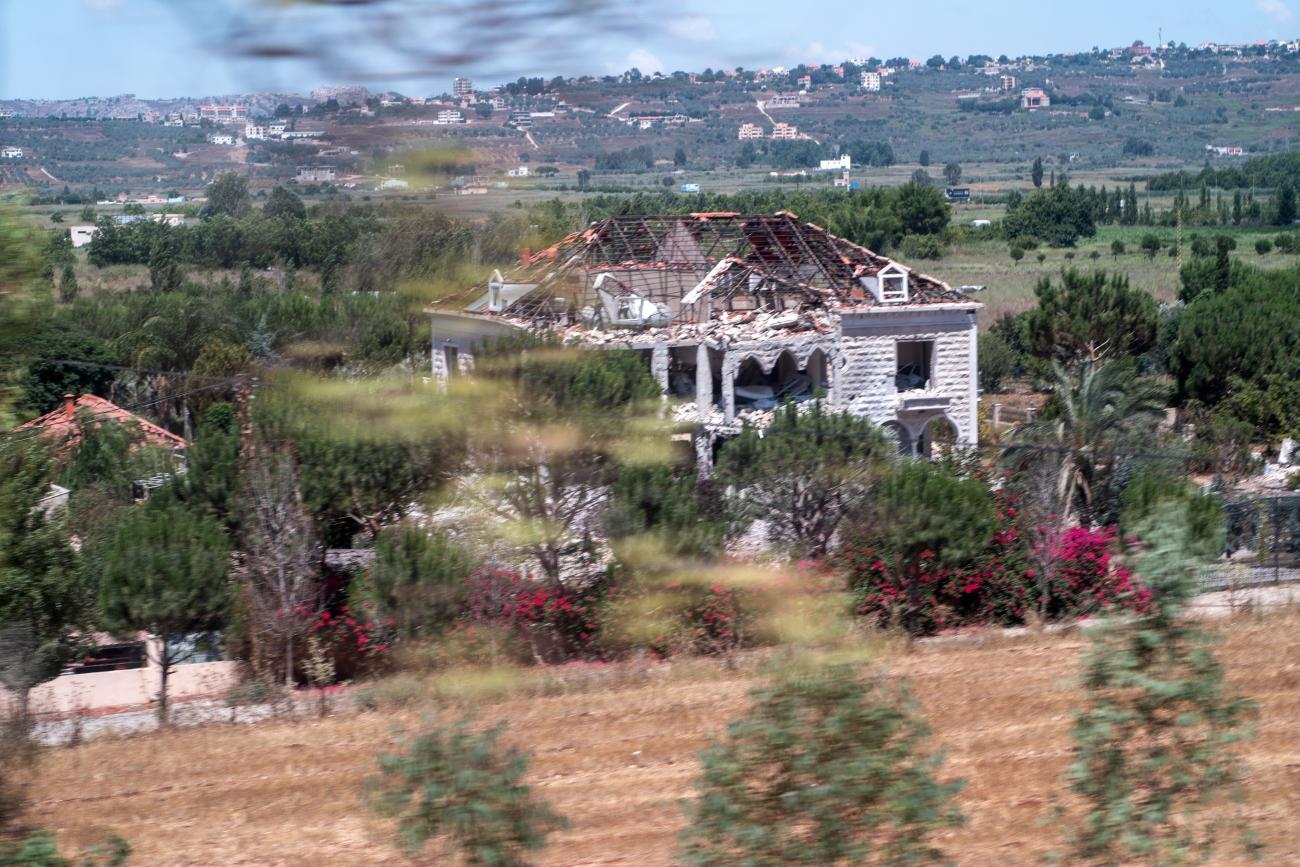
The recent conflict in Lebanon between Israel and Hezbollah, which further escalated significantly in late 2024, has left a trail of devastation. Thousands have lost their lives, countless areas have been reduced to rubble, and critical infrastructure has been shattered. At the height of the crisis, about 1.3 million people were internally displaced. The sheer scale of destruction has resulted in millions of tons of debris, posing both immediate hazards and long-term recovery challenges.
Amid this destruction, the United Nations has mobilized a ‘UN Debris Taskforce’, to coordinate a sustainable and human rights-based approach to debris management. This collaborative effort, brings together ten UN entities to work alongside the Lebanese government, local communities, and international partners, ensuring a safe, efficient, and environmentally responsible path towards rebuilding.
“Our goal is not just to help clear debris in the most effective ways, but to do so in a way that safeguards the environment and public health,” explained Imran Riza, the Deputy Special Coordinator, Resident and Humanitarian Coordinator. “We are committed to promoting sustainable and environmentally friendly practices that support long-term recovery and resilience.”
War Debris: An Opportunity for Lebanon’s Recovery
The unprecedented destruction has transformed once-thriving neighborhoods into hazardous zones. Families returning to their homes face significant risks from unexploded ordnance (UXOs), environmental contaminants, and structurally compromised buildings. Additionally, schools and some of Lebanon’s cultural heritage sites now lie in ruins.
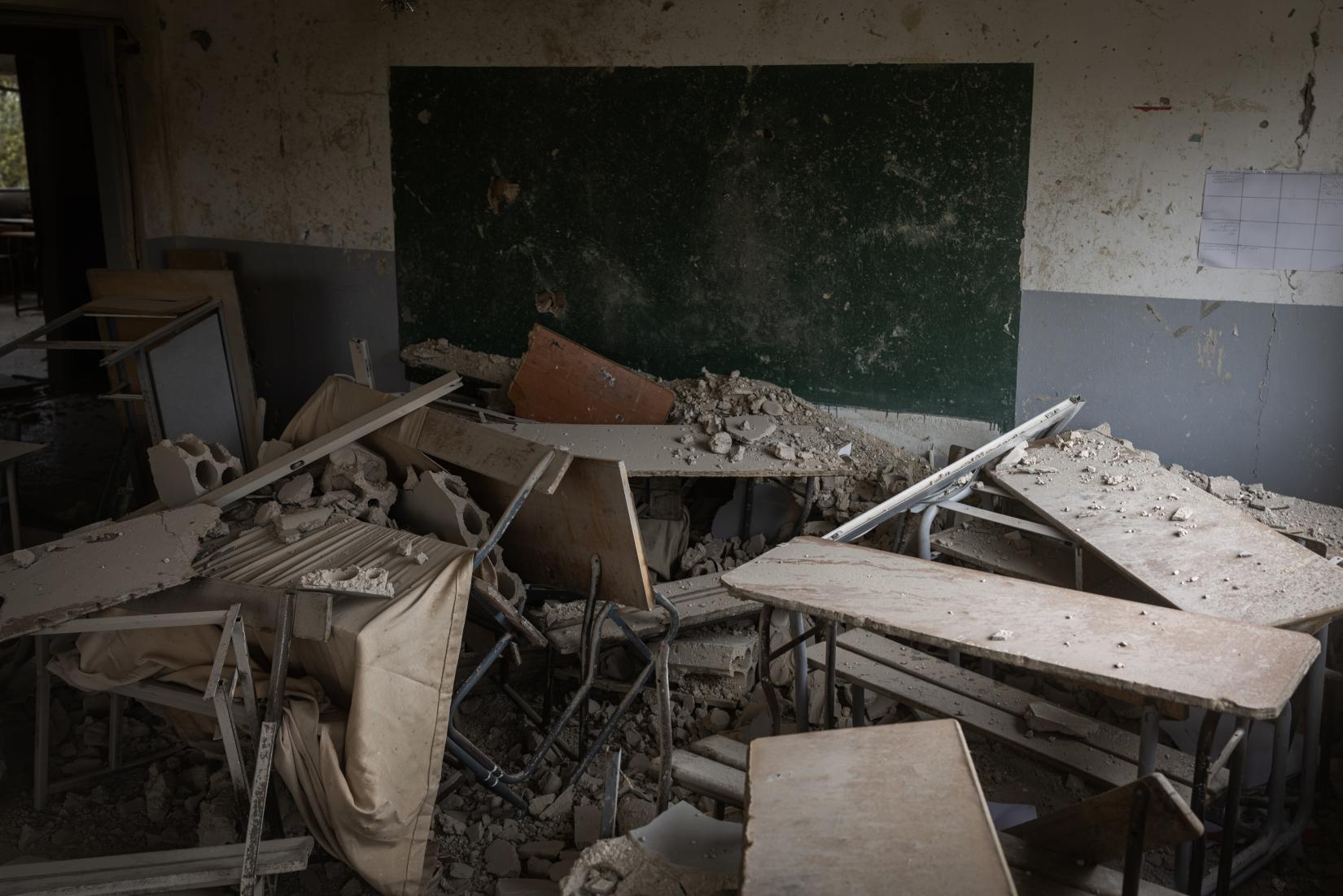
Structural collapses and the mixing of domestic waste with debris have exacerbated health and environmental hazards, creating an urgent need for intervention.
“The environmental and safety challenges are immense,” said Mrs. Jihan Seoud, an expert from the United Nations Development Programme (UNDP) with extensive experience in debris management. “But with the right strategies and collaboration, we can turn this crisis into an opportunity for sustainable recovery.”
A structured approach to debris management prioritizes recycling and reuse, reducing the demand for new construction materials while promoting a circular economy. This also creates socio-economic opportunities, enabling communities to participate actively in rebuilding efforts.
Mr. Hassan Dbouk, Mayor of Tyre and Head of the Tyre Union of Municipalities, highlighted the importance of swift action. “Proper damage assessment is essential to map and categorize targeted buildings, estimate the volume of debris, and create a transport plan to ensure smooth collection and disposal.” He stressed that recycling materials like steel and aluminum must be prioritized to reduce reliance on raw resources and promote sustainability.
Dbouk’s insight underscores the need to prioritize debris management as a cornerstone of recovery efforts. For Lebanon’s recovery to be effective, the government must play a central role in leading and coordinating debris management efforts, working alongside municipalities, international organizations, and affected communities. This includes defining ownership of debris, streamlining legal procedures, and identifying processing and disposal sites. Engaging local communities and returnees in rebuilding efforts ensures a more inclusive and impactful recovery process.
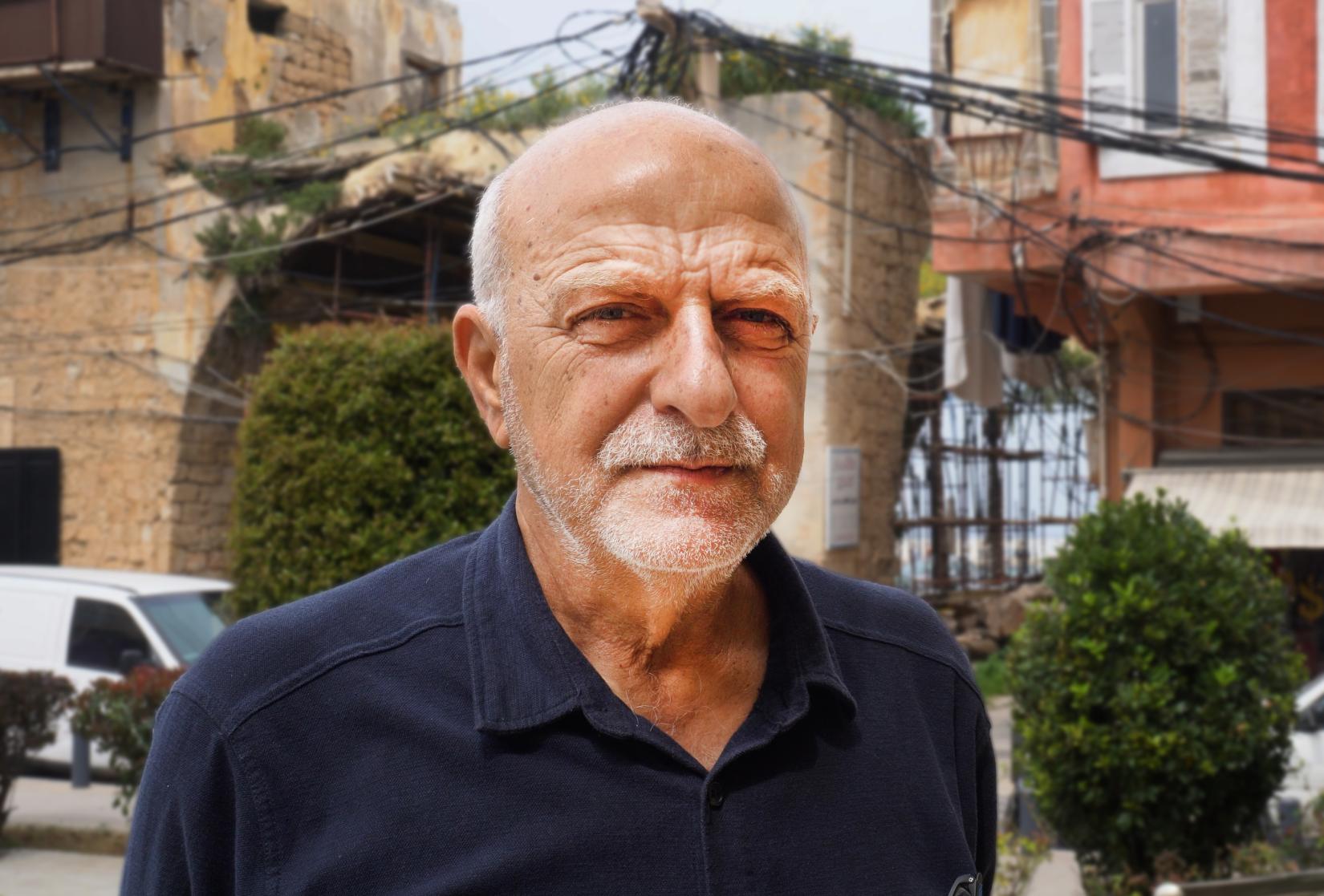
Public awareness campaigns are critical, not only to prevent accidents involving unexploded ordnance (UXOs), hazardous materials, or structural building cracks, but also to engage and empower citizens in the recovery process. To address these risks, the UN partnered with the Lebanese Armed Forces to launch an awareness campaign on the dangers of UXOs. Additionally, it collaborated with the Ministry of Culture to launch a campaign aimed at preserving and protecting debris in heritage sites.
Furthermore, by assessing debris for recyclables and hazardous content, and encouraging the reuse of materials in rehabilitation and reconstruction, Lebanon can reduce its reliance on new resources while addressing environmental threats.
Accordingly, the UN, through its specialized agencies, has stepped in by undertaking a ‘Rapid Impact Assessment’ grounded in local voices, providing data from 135 areas in the post-war period across health, education, business and more, and calling for immediate action toward a people-centered recovery in the affected areas. It also conducted remote building damage assessments in the South, Nabatiyeh, Bekaa, and Baalbek-Hermel governorates and the southern suburbs of Beirut (spanning parts of the Beirut and Mount Lebanon governorates), covering 15 districts.
Picking up the Pieces: The challenging return of citizens
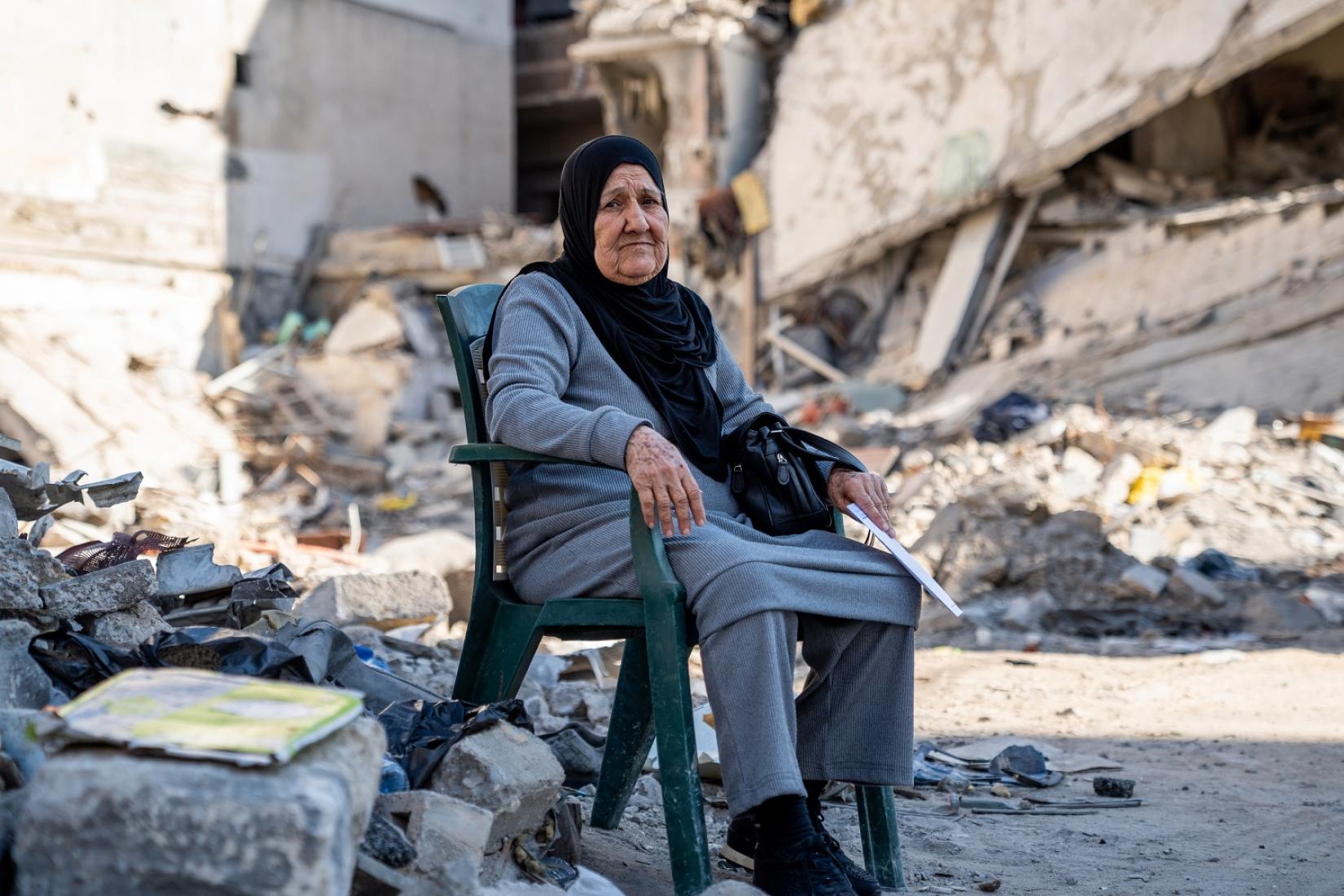
In the city of Nabatiyeh, the return of displaced residents is both hopeful and challenging. Streets once filled with bustling life now stand in ruins, and families returning home must navigate the overwhelming task of rebuilding from the rubble. It was a painful homecoming, marked by loss but also by a strong determination to start again, to rebuild, to simply survive.
“After we entered our destroyed building to collect a few belongings, we gathered old family pictures that were still intact,” shared a displaced resident returning to his city Nabatiyeh. “We couldn’t afford to clear the rubble ourselves, so we asked a local contractor to remove the debris in exchange for salvaging any steel and recyclables.”
This approach, while practical to avoid high costs of removal and transportation fees, often means that valuable materials for reconstruction are lost, and unregulated removal can create additional environmental and safety risks. Ensuring a structured, government-led debris management strategy is essential to prevent these hazards.
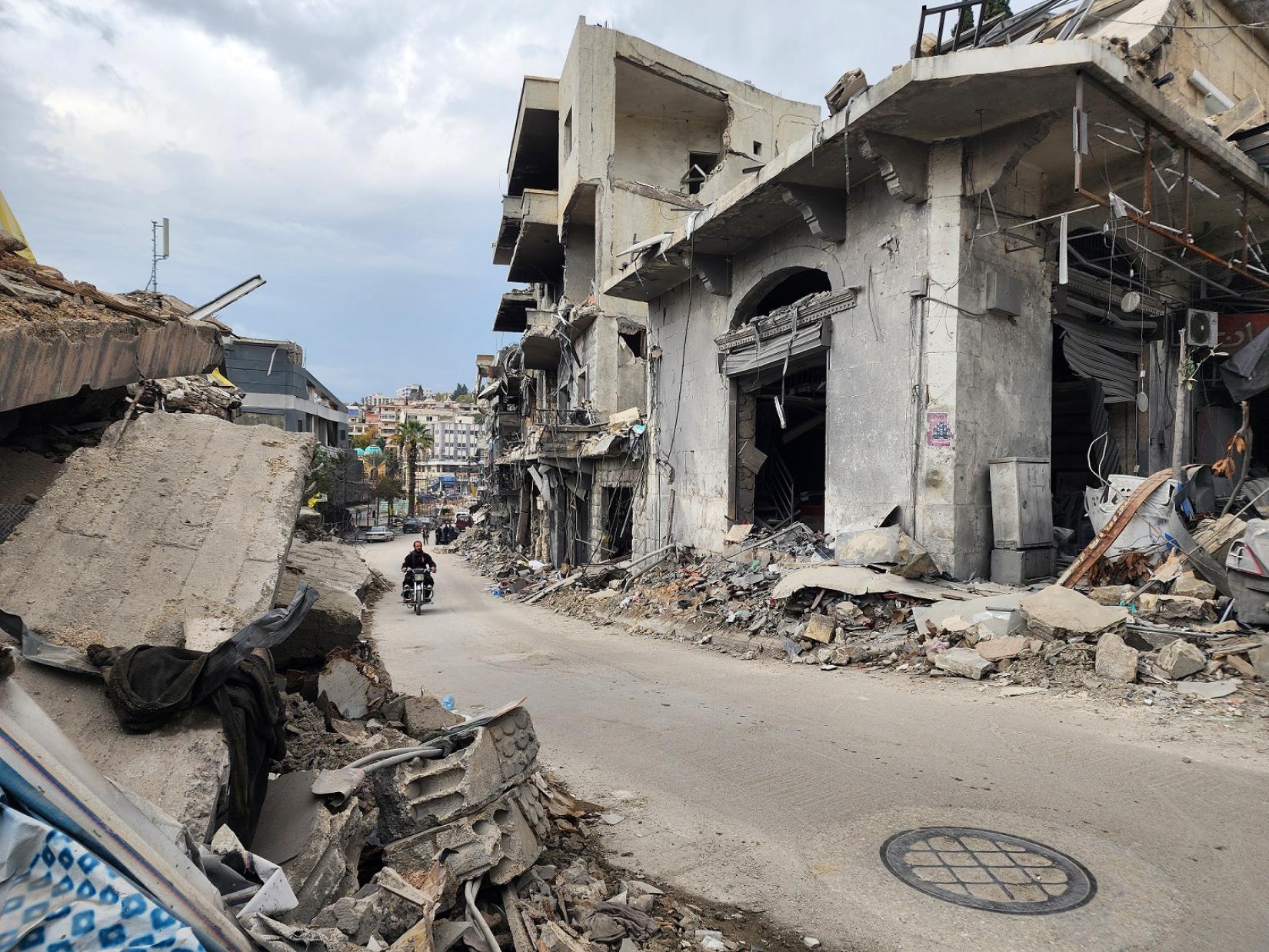
The UN Debris Taskforce: Initiating a Joint Sustainable Framework
At the core of UN Lebanon’s post-conflict efforts is the UN Debris Taskforce (DTF), which has developed a comprehensive framework to guide debris management in the aftermath of the conflict. The DTF is composed of ten UN entities (UN-Habitat, UNEP, UNDP, ILO, OCHA, UNMAS, UNESCO, IOM, FAO, and UNOPS) working collaboratively to ensure that debris removal is safe, efficient, and environmentally responsible while ensuring that affected populations actively participate in the recovery process.
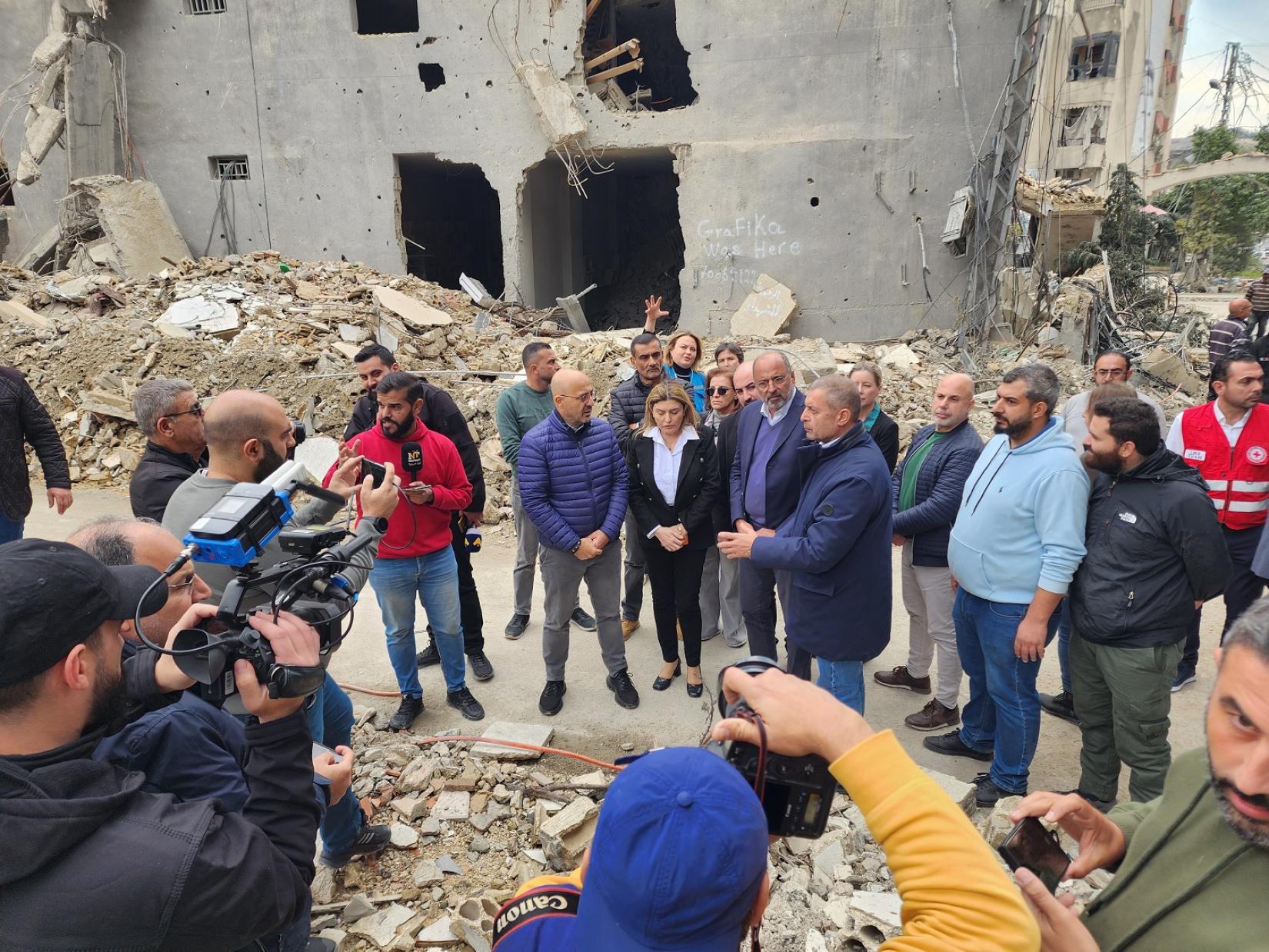
Elie Mansour, an UN-Habitat expert, underscored the importance of health and safety in such initiative. “Effective debris management begins with inspecting the debris for unexploded ordnance or other contaminants,” he said. “If sorting or recycling can’t occur on-site, debris should be safely transported to designated processing locations. Recycling must be prioritized to recover materials for reconstruction.”
The Task Force is also leveraging international methodologies to estimate debris volume, enabling effective planning for removal, recycling and disposal in environmentally approved sites, such as abandoned quarries, to prevent further degradation of Lebanon’s landscapes.
Partnerships for Recovery
A successful recovery depends on collaboration between multiple stakeholders, which the UN is working closely with the Government, including the Ministries of Environment, Public Works, Health, and Culture, along with local municipalities and unions, are the main actors in shaping and implementing a sustainable debris management strategy.
The Lebanese Armed Forces (LAF) and the Lebanese Mine Action Center (LMAC) also play a crucial role in risk assessments and UXO clearance, working closely with municipalities to address the dangers posed by explosive remnants of war. Additionally, academic institutions provide the technical expertise in debris quantification and management.
Meanwhile, the private sector, particularly the Association of Lebanese Industrialists, also plays a pivotal role. Through public-private partnerships, they are introducing innovative recycling technologies and sustainable practices that create jobs and reduce waste.
“We see this as an opportunity to build back better and greener,” said a spokesperson from the Association of Lebanese Industrialists. “Our circular economy initiatives can transform debris into reusable construction materials, fostering economic growth and reducing pollution.”
Ensuring fair wages, safe working conditions, and social protections for debris removal workers remains a key priority for the UN. These principles remain central to the UN’s advocacy efforts with the Government and other partners, reinforcing a recovery process built on fairness, safety, and dignity.
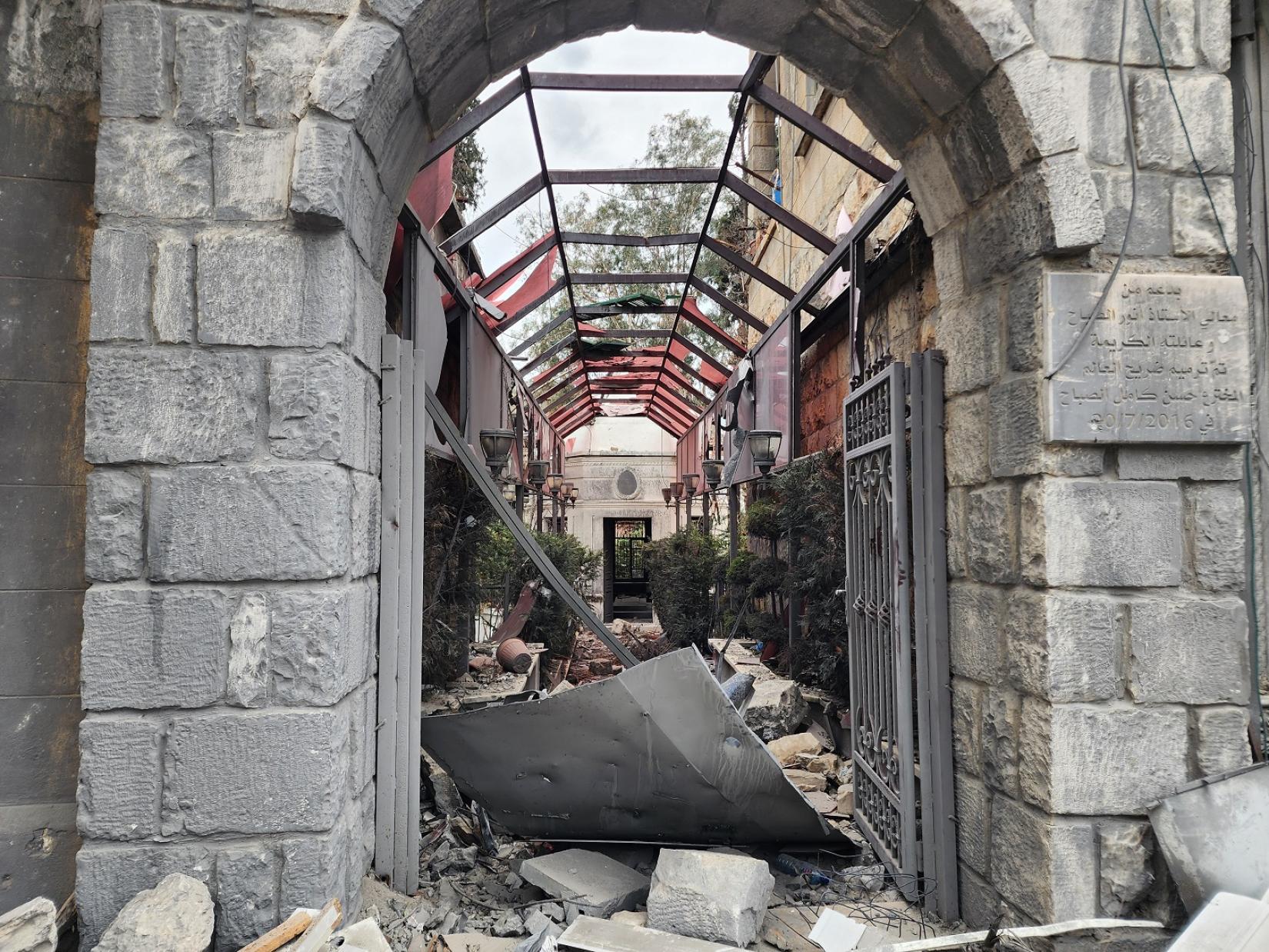
A Vision for Lebanon’s Future: A Rights-based and Sustainable Recovery
Lebanon’s path to recovery is long, but with coordinated efforts from the government, UN, local stakeholders, and international partners, a sustainable future is within reach. By prioritizing sustainable debris management practices, cultural and environmental preservation, and a human rights-based approach, Lebanon can build a stronger, more prosperous future.
“This crisis has tested us all,” said Riza. “But it has also shown us the strength of collective action and the power of the coordinated efforts of the UN and its partners, especially the government.”
As Lebanon takes its first steps toward recovery, the hope is that these efforts will not only restore what has been lost but also lay the foundation for a brighter, more sustainable future.
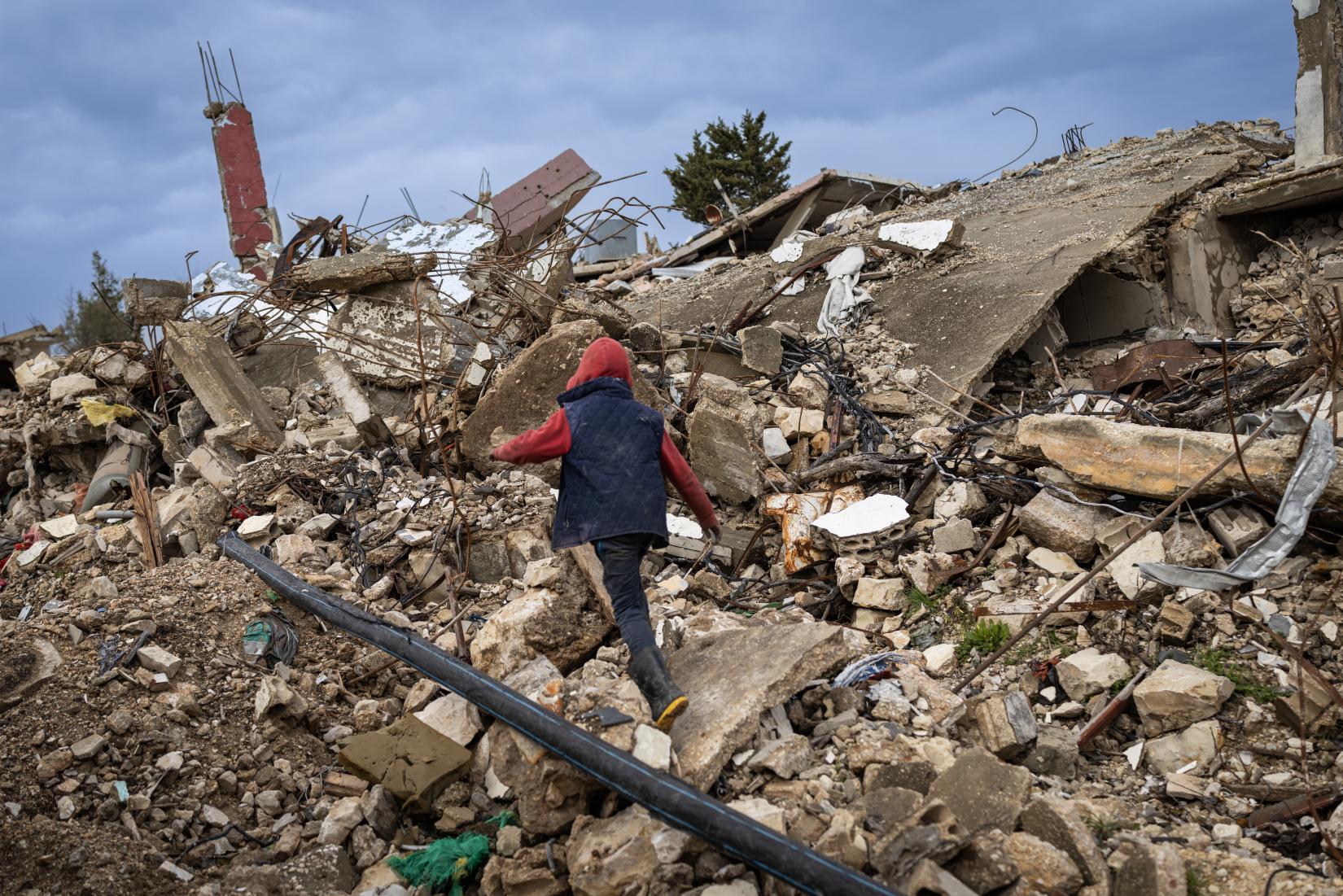
To read more coordination results from the UN in Lebanon click here.













